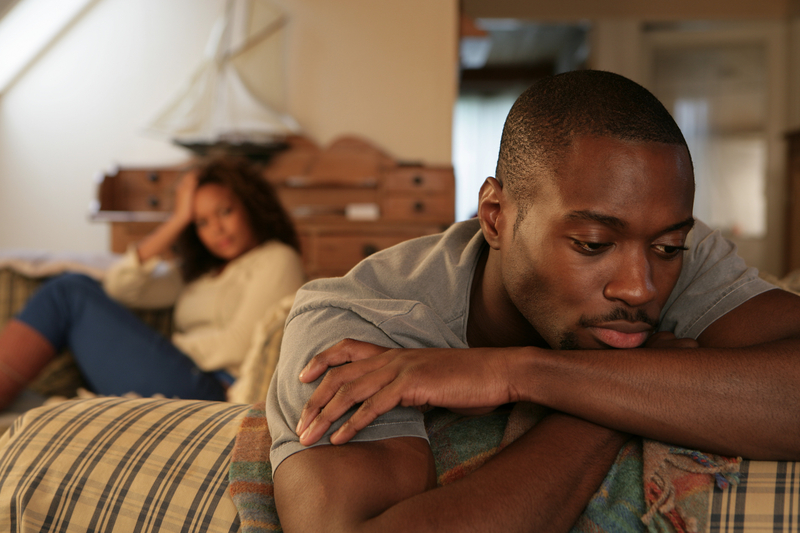by Hilary Beard
Editor’s note: This is part 1 of the four-part series Keeping Black Men Healthy, in honor of National Minority Health Month. Read part 2 here.
If you notice that you and your male sexual partner have started butting heads as bedtime draws near, it may be because he’s struggling to perform sexually but doesn’t want you to know it.
“Some men,” says clinical psychologist Gail Wyatt, a sex therapist and professor at UCLA, “know that they are having problems, so they find a reason or excuse not to have sex. They may start fighting, arguing, complaining, or not doing what their partner expected them to do at bedtime or close to bedtime. That causes them to sleep separately or not speak to each other—whatever it is, it’s not conducive to having sex.”
And, consciously or not, that might be exactly the point.
Roughly 18 million American men experience erectile dysfunction, or ED, defined as the inability to attain or sustain an erection for satisfactory sexual intercourse, and typically measured over a three-month period. ED is not a natural consequence of aging; however, it becomes increasingly prevalent with age, with approximately 40 percent of 40-year-old men and 70 percent of 70-year-old men reporting that they experience the condition. African-American men are more likely than men of other races to experience ED.
“Men are coming in younger and younger,” says Dr. Gerald Hoke, chief of urology at New York’s Harlem Hospital. “They used to start coming in during their late 40s and 50s. Now more men are coming in during their late 30s and early 40s.”
A few men even experience problems in their early to mid-20s.
ED’s underlying causes include cardiovascular disease—high blood pressure, high cholesterol and clogged blood vessels, for example—diabetes, depression, smoking, alcohol use, obesity, mental illness and psychological distress.
A Sign of the Times?
The symptoms of ED can vary. “Either their erection is not firm enough for penetration to happen, or they’re struggling to get an erection, keep an erection, and then may ejaculate too soon to allow themselves or their partners to experience enough pleasure so that they may become orgasmic,” Wyatt says.
Since the ability to have a lasting hard erection lies at the core of many men’s identity, challenges to their ability to perform can challenge a man’s sense of self, and the struggle can lead to relationship problems, including bickering at bedtime.
“It may look like the other person started the fight, not them, but the man intentionally provoked his partner” to avoid sex, Wyatt says.
She notes that men’s partners often have unrealistic expectations, pressuring the man to perform on demand or wanting him to get an erection and get it over with—to “do his job” as a man. Contrary to stereotypes, though, men’s bodies don’t work that way.
“Conversation is very important,” says Wyatt. “You have to assess whether your partner can meet your needs under the circumstances that they—not you—are living in.”
A sex therapist—an expert who helps treat sex problems that have no underlying medical cause—can help.
Amazed at Improvement
There are several levels of ED treatment. The first includes lifestyle modifications and optimizing a man’s general health.
For men who smoke, it’s important to stop.
“Either choose cigarettes or choose sex; you can’t have them both,” Hoke says. Men who begin smoking during their teens typically experience sexual-performance problems by their late 30s or early 40s.
Eating fewer fatty foods; shedding a few pounds; going speed walking for half an hour four times a week; and avoiding alcohol, weed and other controlled substances before sex can improve sexual performance.
Read full article at The Root







